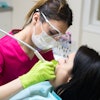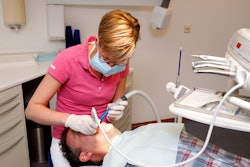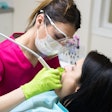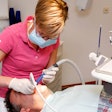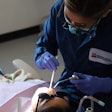Systemic barriers to oral healthcare persist in the U.S., but expanding dental hygienist autonomy may improve access to care, according to a new white paper dated September 10 by the American Dental Hygienists’ Association.
Therefore, every state in the U.S. should make several moves, including lifting restrictions on the settings in which dental hygienists can practice and reimbursing them directly, according to the white paper “Missed Potential: How Expanding Dental Hygienists’ Roles Can Bridge America's Oral Health Gaps.”
“The evidence shows that expanded dental hygienist autonomy dramatically improves access to preventive care, especially for underserved populations,” Dr. JoAnn Gurenlian, ADHA’s director of education, research, and advocacy, said in a press release. “This research provides policymakers with data showing that empowering hygienists to provide the preventive care they were educated to perform prevents costly emergency interventions and improves population health outcomes -- it’s a public health imperative.”
In the U.S., 24.7 million people live in dental care shortage areas, 1.7 million cannot access care within a 30-minute drive, and gum disease costs about $154 billion per year in lost productivity, according to the white paper.
While these challenges exist, so do varying state laws for dental hygienists. As of 2025, 43 states allow direct access, but hygienists’ scopes vary. Those states without direct access require a dentist to directly supervise hygienists. For example, Colorado gives dental hygienists full autonomy while Mississippi restricts their practice. In Colorado, research shows that only 10% of low-income adults describe their oral health as poor. However, in Mississippi, that figure is 27%, according to the white paper.
To remedy these issues, it is recommended that every state consider the following:
- Permit dental hygienists to practice to the highest U.S. level
- Remove restrictions on settings in which dental hygienists can practice
- Support the use of teledentistry
- Provide direct reimbursement to dental hygienists for the services provided
“This white paper is another example of our profession offering evidence-based support for critical policy changes and development,” ADHA president Lancette VanGuilder said in the press release. “Through ADHA’s strong advocacy work and growing federal presence, we’re making dental hygienists’ voices heard as vital healthcare providers and demonstrating that our profession is essential to solving America’s oral health crisis. Removing outdated practice barriers isn’t just good policy -- it’s critical to healthcare infrastructure.”


